Killing of top Hamas leader looks more like a 'debilitating blow' that the Israelis are delivering: Jonathan Schanzer
Former counterterrorism analyst Jonathan Schanzer discusses the dispatch of an Iranian warship to the Red Sea and the killing of a top Hamas leader by the Israeli military and its impact on the war.
The head of Hezbollah threatened Israel on Wednesday, saying the Lebanese terrorist group is not afraid of war following a drone strike Tuesday that killed a senior Hamas leader in Beirut.
Hezbollah leader Sayyed Hassan Nasrallah called the killing of Saleh Arouri, the founder of Hamas' military wing, a "flagrant Israeli aggression" and "a major, dangerous crime about which we cannot be silent" during a televised speech reported by Reuters.
Nasrallah reportedly addressed Israeli Defense Minister Yoav Gallant, saying the Jewish state "will not succeed in achieving the war's goals."
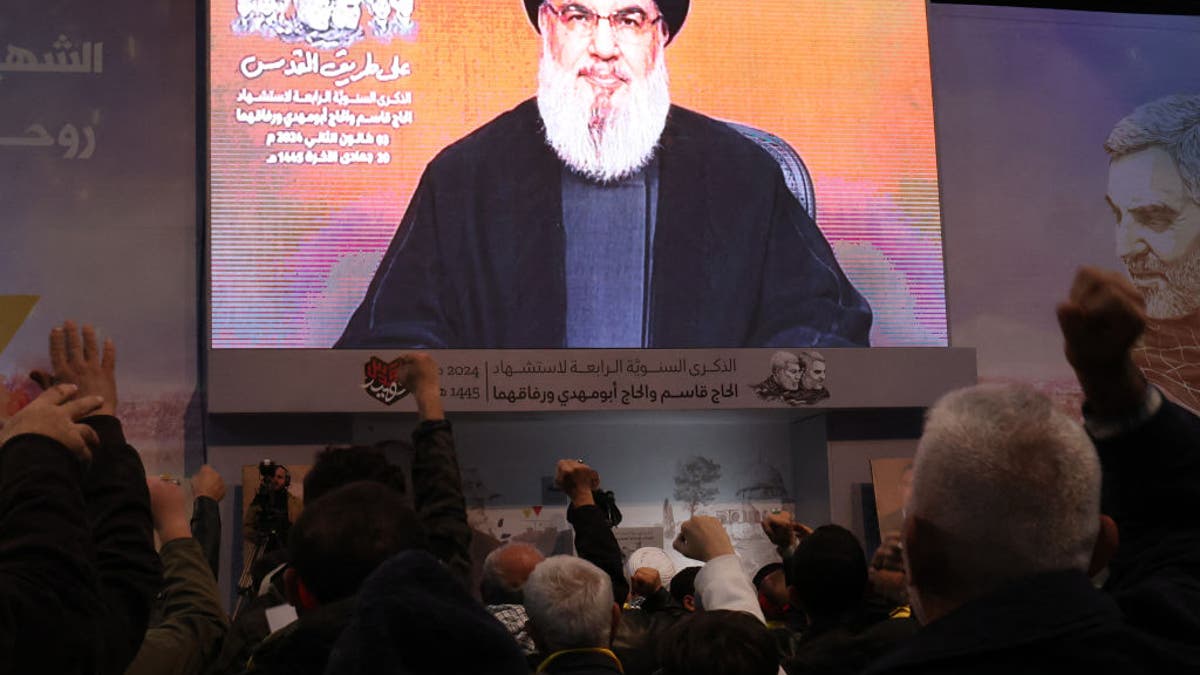
People watch the televised speech of Lebanon's Hezbollah chief Hassan Nasrallah in Beirut's southern suburb on Wednesday to mark the anniversary of the killing of top Iranian commander Qasem Soleimani. (Anwar Amro/AFP via Getty Images)
If Israel chose to start a war on Lebanon, Nasrallah said there would be "no ceilings" and "no rules" for Hezbollah.
"Whoever thinks of war with us, in one word, he will regret it," Nasrallah said.
A drone struck an apartment in Lebanon's capital Tuesday and killed Arouri, prompting worries of retaliation by Lebanon's Hezbollah. Hezbollah-linked news outlets reported that an Israeli air strike killed the deputy Hamas leader.
Israeli officials have denied involvement in the strike but noted the "surgical" precision of the attack.
"Israel has not taken responsibility for this attack," Ambassador Mark Regev, a Netanyahu adviser, told MSNBC. "But whoever did it must be clear that this was not an attack on the Lebanese state."
"It was not even an attack on Hezbollah terrorist organization," he added. "Whoever did this did a surgical strike against the Hamas leadership."
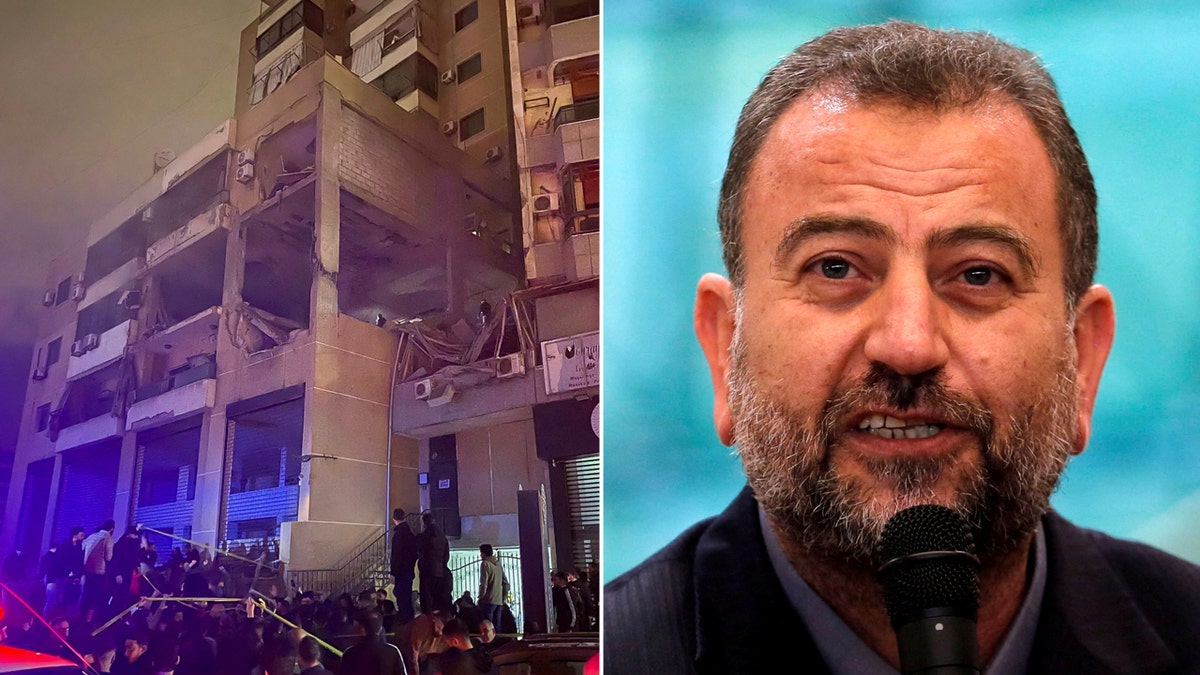
Top Hamas official Saleh Arouri was killed in an explosion in Beirut, according to Hezbollah media. (Reuters)
The airstrike marked the first hit on Beirut after three months of crossfire between the Israeli military and Hezbollah.
The Iran-backed terrorist group launched rockets across the border on Oct. 8 in support of Hamas' deadly attack on southern Israel the previous day, which sparked the latest ongoing conflict in the Middle East.
Since the outbreak of violence, the Israeli government has redoubled efforts targeting key Hamas leaders in an attempt to cripple the terrorist organization from the top.
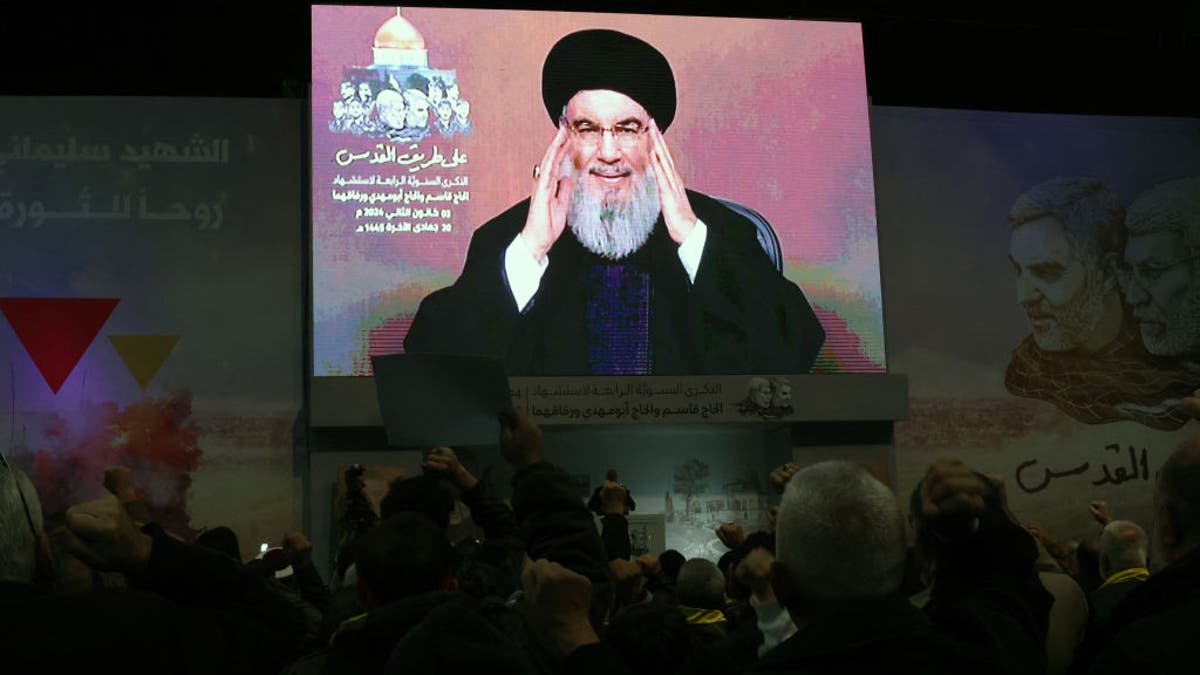
People watch the televised speech of Lebanon's Hezbollah chief Hassan Nasrallah on Wednesday to mark the anniversary of the killing of slain top Iranian commander Qasem Soleimani. (Anwar Amro/AFP via Getty Images)
Nasrallah said Hezbollah's "quick" attack on Oct. 8 and firing across international boundary lines prevented Israel from attacking Lebanon, claiming the Israeli military's defense abilities "had collapsed."
Israeli Defense Forces Chief of Staff Lt. Gen. Herzi Halevi told security officials Wednesday the military was in a "very strong state of readiness in the north."
"There is a lot of expertise, great capabilities and high morale," Halevi said. "We are in very high readiness in all sectors, and we are currently focusing on fighting Hamas."
Halevi spoke during a situational assessment at the northern border with MG Ori Gordin, the commanding officer of the Northern Command; BG Zion Ratzonthe, commanding officer of the 210th Division; and the brigade and battalion commanders from the reserve units guarding the sector.
The IDF official signaled significant changes in terms of general regional stability, routine defense measures and the posturing of more soldiers on the borders for the next year.
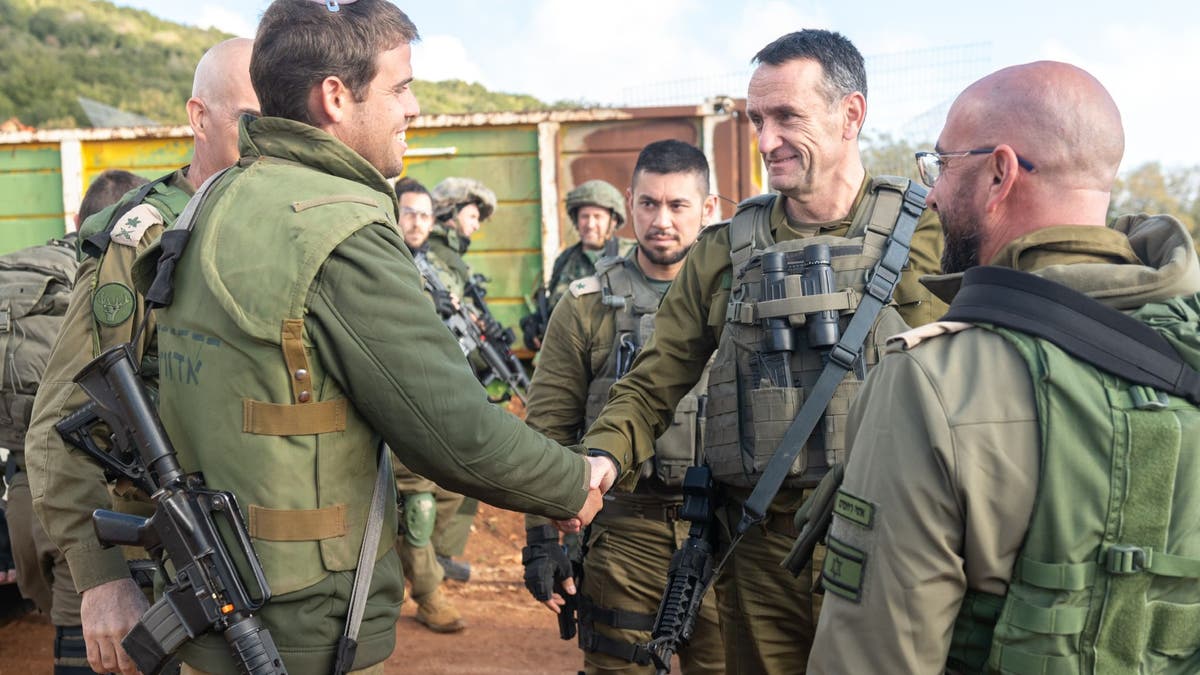
IDF Chief of Staff Lt. Gen. Herzi Halevi is seen during a situational assessment at Israel's northern border with Lebanon. (IDF Spokesman's Unit)
"Because this event, as hard as it is, and we will talk about it a lot more — we could have known, we couldn't have known — it cannot repeat itself, that's for sure," Halevi said. "And we need to provide a very, very strong response to this matter."
"I'm telling you, in our decisions, I know that there is a trained, prepared, ready force, with a lot of spirit," he added. "And we are going with that. That's our security — we don't have anything stronger than that. That's the best."
The foreign policy chief at the European Union said Wednesday that the drone strike this week that killed Arouri could escalate the Israel-Hamas conflict into an "open war" across the Middle East.
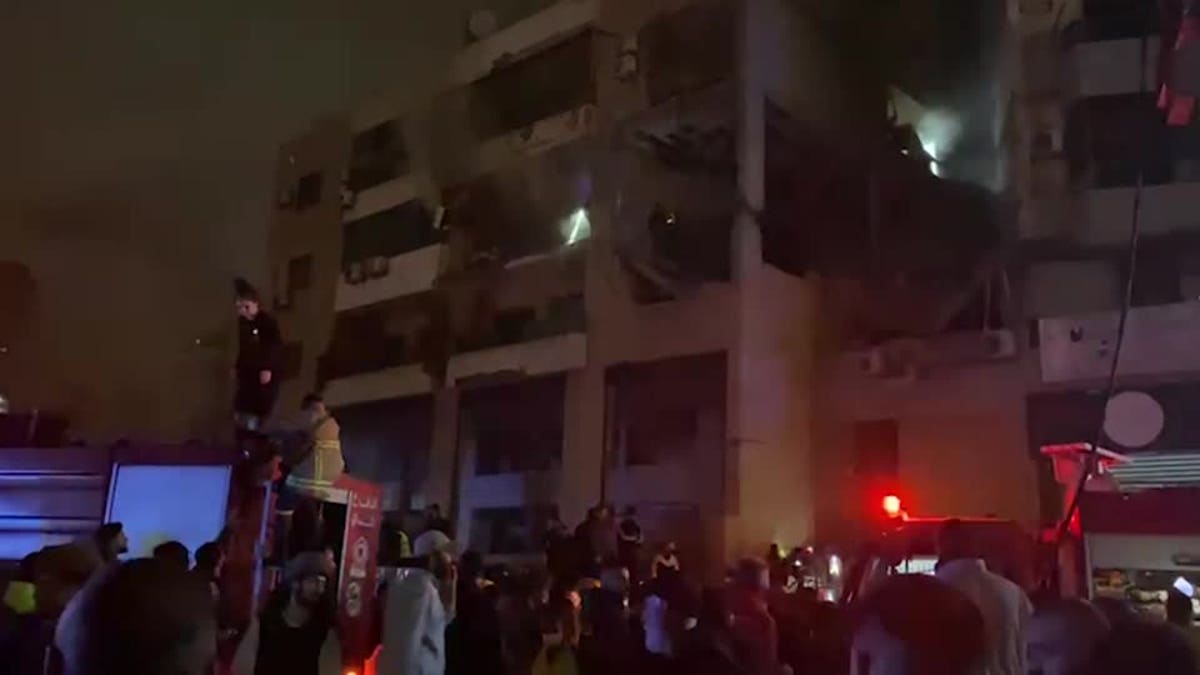
The aftermath of an alleged Israeli air strike on a Hamas office in the southern Beirut suburb. (Reuters)
CLICK HERE TO GET THE FOX NEWS APP
"The risk that what happened in 2006 could happen again — an open war — is a risk that unfortunately cannot be ruled out. And what happened yesterday with the death of one of the leaders of Hamas is yet another factor that could push the conflict to escalate," EU Foreign Policy Chief Josep Borrell said during a news conference in Lisbon, Portugal.
Israel fought a 34-day war with Hezbollah in July and August of 2006. Israel lost an estimated 120 soldiers during the fighting, while Hezbollah lost more than 1,000 fighters.
Fox News Digital reporters Timothy H.J. Nerozzi and Greg Norman and Reuters contributed to this report.










































